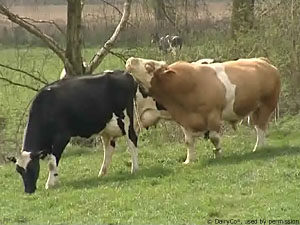Consequences of Poor Conditions at Mating for Beef Cattle
1 August 2015 The consequences of poor conditions at mating are:
The consequences of poor conditions at mating are:
- More barren cows. The steps to deal with this are first to PD the herd as soon as possible to identify all barren cows. The earliest all the cows can be successfully PDd would be 5 weeks after the bull is removed. The second step is to sell all barren cows either immediately to be finished by other producers, particularly when feed is short or by finishing them as rapidly as possible eg feeding silage ad-lib with 4 kg of barley per day split between 2 feeds. The final point would be retain more homebred weaned heifers as replacements for mating next spring.Do not keep barren cows for mating next spring. Being dry next summer they will rapidly gain condition and run a high risk of being overfat and having severe calving difficulties in 18 months time.
- Cows in poorer condition. The whole herd, including all pregnant cows are likely to be much leaner than normal when they are weaned in the autumn. Combined with restricted, poor quality silage this runs a very real risk of cows being so lean at calving next spring that downer cows will be a major problem. To avoid this first, consider weaning earlier than normal. This will allow cows to divert food they would otherwise have used for milk production into regaining condition. To allow this calves should be put onto a high quality creep feed ad-lib as soon as possible. At housing group cows in terms of their condition and feed accordingly. The objective for the first 3 months of the winter must be to allow cows to regain condition so that they are at least at the condition score they should be at calving by 2 months before calving starts. Remember one dead downer cow alone will currently purchase over 10 tonnes of barley!
- Don’t forget other stock eg calves, replacement heifers and bulls who all will also be leaner and lighter than normal at housing.
Basil Lowman, basil.lowman@sac.co.uk.
Sign up to the FAS newsletter
Receive updates on news, events and publications from Scotland’s Farm Advisory Service
